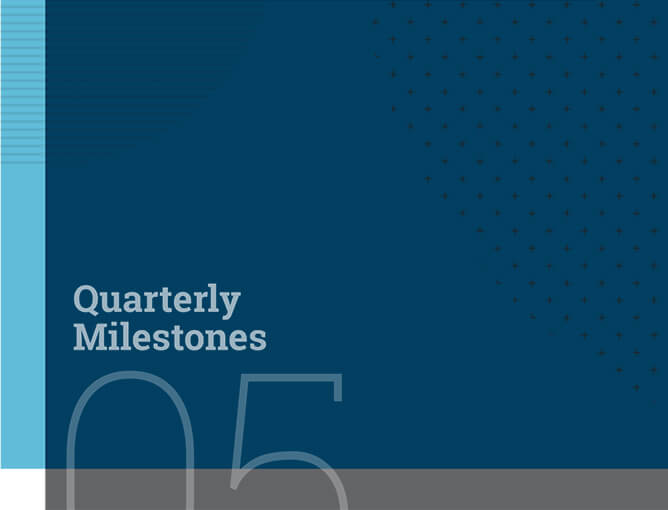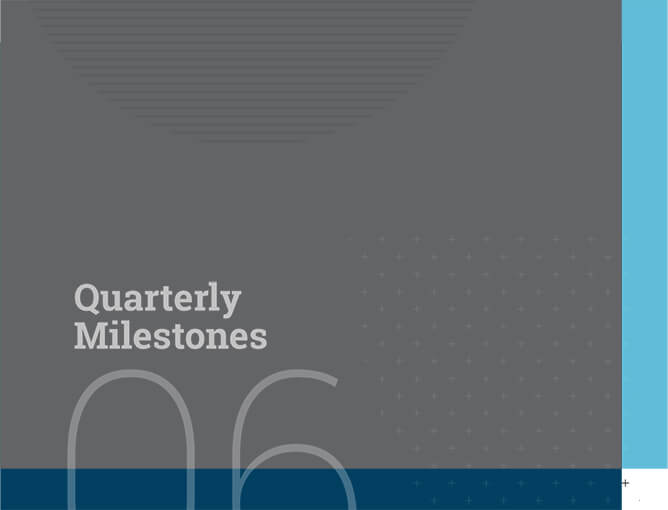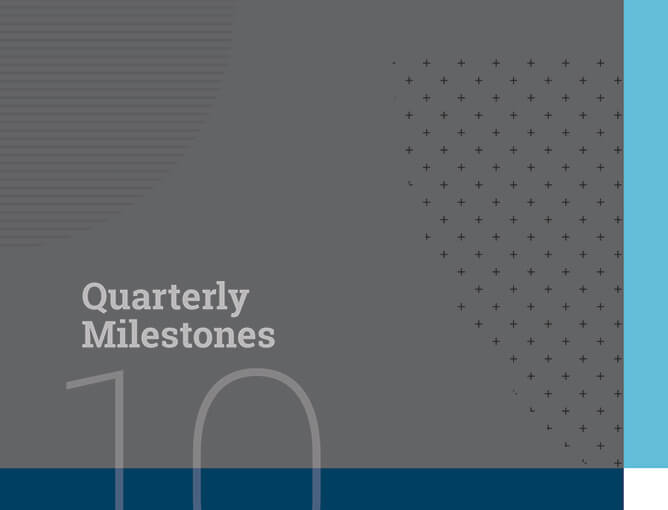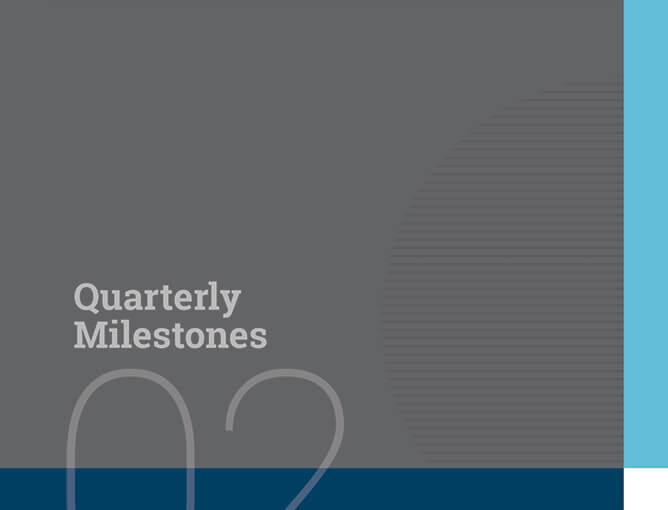
Shruti RajanPartner

Khyati GoelSenior Associate

Rebecca CardosoAssociate
Key Developments
-
Beneficial ownership threshold for partnership firms reduced to 10%
The Prevention of Money laundering (Maintenance of Records) Amendment Rules, 2023 (PMLA Rules) have tightened the beneficial ownership threshold for partnership firms, reducing it from 15% to 10%. Accordingly, beneficial owner now means:
- an entity that has an ownership or entitlement to more than 10% of the shares or capital or profits of the partnership; or
- a person who exercises control 'through other means.'
In this context, control means the right to control the management or make policy decisions. By virtue of this widened ambit of ‘beneficial owner’, reporting entities, which include banking companies, financial institutions, Securities and Exchange Board of India (SEBI) registered intermediaries, and persons carrying on designated businesses or professions as set out under the Prevention of Money Laundering Act, 2002, will have to undertake enhanced due diligence to verify the beneficial owner of prospective clients. This is in addition to other obligations of reporting entities which majorly entail verifying the identity of clients, maintaining records, and furnishing information to the Financial Intelligence Unit.
This amendment comes in light of the Finance Ministry's earlier move of lowering the beneficial ownership threshold for companies and trusts to 10%. It attempts to achieve uniformity across beneficial ownership thresholds for non-individual clients and enhance the customer due diligence procedure and transparency of prospective clients.
-
Enhanced accountability for trustees of asset management companies of mutual funds; core responsibilities set out
With the growth of the mutual fund industry, SEBI has carved out clear roles and responsibilities for trustees and boards of directors of Asset Management Companies (AMC) of mutual funds. This comes in the backdrop of the amendment to the SEBI (Mutual Funds) Regulations, 1996, wherein the trustees were tasked with exercising due diligence on such matters as may be specified by the Board from time to time.
In this regard, the core responsibilities of a mutual fund trustee would include:
- ensuring the fairness of the fees and expenses charged by the AMCs;
- reviewing the performance of the mutual fund's scheme against peers;
- putting adequate systems in place to prevent mis-selling;
- ensuring that there is no undue influence in the operations by sponsors, associates, or other stakeholders of the AMC;
- ensuring that there is no undue or unfair advantage given to any associate entities;
- addressing conflicts of interest between shareholders, stakeholders, associates of the AMC and unitholders; and
- ensuring an adequate system to prevent market misconduct by employees and connected entities of the AMC.
Further, for responsibilities other than core responsibilities, such as reviewing the net worth of the AMC on a periodic basis or ensuring that transactions of the mutual funds are in accordance with the provisions of the trust deed, trustees may rely on third parties such as audit firms, legal firms, merchant bankers, etc. Additionally, responsibilities have also been laid down for the unitholder protection committee, which is responsible for the protection of unitholders of mutual funds.
This is a welcome move in the booming industry of mutual funds as it not only codifies best practices but also imposes overall accountability on trustees towards unitholders, given that they now have a higher onus to discharge their duties effectively.
-
Resolution of investors’ disputes through online dispute resolution mechanism
The Securities and Exchange Board of India (SEBI), through Master Circular dated 11 August 2023 (ODR Circular), has introduced an Online Dispute Resolution (ODR) system to resolve disputes in the Indian securities market. This system empowers Market Infrastructure Institutions (MII), including stock exchanges and depositories, to handle disputes through a common Online Dispute Resolution Portal (ODR Portal). The ODR Portal facilitates the resolution of disputes between investors/clients and listed companies, including their registrar and share transfer agents, or any of the specified intermediaries (Market Participant).
Investors or clients must initially file complaints with the relevant Market Participant. If the issue remains unresolved, they can escalate the dispute through the SEBI Complaints Redress System (SCORES) portal. After going through the SCORES process, if the dispute remains unresolved, investors can initiate dispute resolution through the ODR Portal. Alternatively, if the resolution remains unsatisfactory at the Market Participant level, the investor/client may directly initiate the ODR process without involving SCORES.
As per the ODR Circular, the ODR process can be initiated when disputes:
- fall outside the SCORES escalation processes;
- are not pending before any court, tribunal, arbitral process or consumer forum (including a moratorium under an insolvency resolution process, or liquidation or winding up processes initiated against the Market Participant); or
- are non-arbitrable under Indian law.
The ODR process must be initiated within the applicable limitation period, which begins from the date of the occurrence of the issue or the disputed transaction date, whichever is later.
Implementing the ODR framework for resolution of disputes in the securities market sets a global precedent. It also provides comfort to participants in the securities market as the adoption of ODR should provide for a more efficient and timely system to address grievances, whilst enabling the mechanism to remain affordable, accessible, and accountable.
-
Redressal of investor grievances through the SEBI complaint redressal platform and linking it to the online dispute resolution platform
Parallel with the above development, SEBI, through a circular dated 20 September 2023 (SCORES Circular), has revised the framework for handling and monitoring complaints received through the existing SCORES platform. To harmonise the two systems, disputes pending under the ODR mechanism will not be dealt with through SCORES.
Contrary to the prior stipulation in the ODR Circular, it is noteworthy that the SCORES Circular has subsequently modified the stance - investors now have the liberty to engage with the ODR mechanism even during the SCORES escalation process and need not wait till the SCORES process is completed. In such instances, grievances previously under the purview of SCORES will be considered as disposed.
Market Participants have proactively asked SEBI to clarify this ambiguity. As of the date of publication, SEBI is actively engaged in discussions to address this lacuna, and stakeholders can anticipate a new circular or an amendment to the SCORES Circular in the near future to bridge this gap.
-
Additional disclosure requirements and compliances for certain foreign portfolio investors
The SEBI (Foreign Portfolio Investors) Regulations, 2019 (FPI Regulations) were amended with effect from 10 August 2023 to mandate additional disclosures from certain Foreign Portfolio Investors (FPI) regarding their beneficial owners. Subsequently, SEBI issued a circular on 24 August 2023 specifying the manner in which FPIs fulfilling the prescribed criteria are required to provide granular level information to their Designated Depository Participants (DDP). (To read our detailed update on the circular, click here.)
The additional disclosures will involve identifying the entities with economic, ownership, or control rights in the FPI on a full look-through basis without applying any threshold. The detailed mechanism and format for complying with the circular will be spelled out by Standing Operating Procedures which will be framed and adopted by DDPs.
The criteria for identifying the FPIs obligated to make such disclosures are:
- holding more than 50% of their Indian equity Assets Under Management (AUM) in a single Indian corporate group; or
- holding more than INR 25,000 crore of equity AUM in the Indian markets, either individually or with investor group.
Certain categories of FPIs are exempted from these disclosure norms. The circular also recognises that there may arise genuine circumstances which prevent compliance with the disclosure norms. Accordingly, entities that (i) may not pose significant systemic risk (such as Public Retail Funds, Government related investors registered as FPIs, Exchange Traded Funds, etc.), (ii) face genuine constraints in adhering to the specified limits, or (iii) have a broad-based and pooled structure with widespread investor base, etc., are not required to make these additional, granular disclosures.
The additional disclosure requirements are aimed at addressing the possibility of misuse of the FPI route by certain FPIs that have a concentrated portion of their equity portfolio in a single investee company or corporate group, and can potentially circumvent the minimum public shareholding requirements for listed companies. In addition to increasing compliance burden and costs for those FPIs that fit the prescribed parameters, these requirements, geared towards enhancing transparency in FPI investments, may impact various existing FPI structures.
Additionally, FPIs could earlier provide their Legal Entity Identifier (LEI) details in the Common Application Form used for registration, Know Your Customer (KYC) and account opening, on a voluntary basis. Through a circular dated 27 July 2023, SEBI has now decided to mandate the requirement of providing LEI details for all non-individual FPIs. This circular, which came into force with immediate effect, is aimed at improving financial data quality and providing for better risk management. Hence, the use of LEI as a unique identifier for entities engaged in financial transactions is expected to enhance transparency and security in the financial sector.
-
Regulated entities to give personal loan borrowers the option to switch from floating rate to fixed rate regime at the time of resetting of interest rates
The Reserve Bank of India (RBI) has instructed regulated entities (RE) to provide borrowers with the option to switch over from a floating rate to a fixed rate of interest, at the time of reset of interest rates. Borrowers will be given the following choices to opt for:
- enhancement in easy monthly instalment or elongation of tenor (or a combination of both); or
- prepayment, either in part or in full, at any point during the tenor of the loan.
Additionally, REs must ensure that the elongation of tenor in case of floating rate loan does not result in negative amortisation.
This change comes in light of the public’s concern regarding unreasonable elongation of tenor of floating rate loans by lenders, without proper consent and communication being made to the borrowers. This is also a welcome relief for borrowers who have been facing negative amortisation, given the spike in interest rates this year. Now, borrowers will have an array of options to choose from at the time of resetting of the floating interest rates.
Over the next quarter, we can expect SEBI to shift its regulatory focus onto ‘finfluencers’, who have recently come under the radar for providing unregulated financial advice and education. SEBI’s consultation paper on this subject is a step in the right direction, as it brings this rapidly growing industry under the regulatory purview. In this respect – and as is also the case with other developments such as additional disclosure requirements for FPIs – the regulator reflects its keen intention to balance enhanced transparency and market integrity with the ease of doing business.












